Unraveling the Blame Game: A Journey of Courage and Self-Discovery
by Sandy Hibbard
I’ll never forget a pivotal conversation with my therapist, Dr. K, during a particularly challenging time after my divorce. He introduced me to the concept of the “blame game,” a behavior where, in our moments of suffering, we retreat to our primitive instincts, often pointing fingers rather than looking inward.
Ah, the blame game—an all-too-familiar dance. It’s a reflex we’ve all indulged in, consciously or not. When things go sideways, it’s so much easier to pin the blame on someone else than to face our own reflections in the mirror. But why do we do this? What propels us into this vicious cycle? More importantly, how can we step away from it?
I did a little research…
At the core of the blame game are a tangled web of emotions, insecurities, and coping mechanisms—all fueled by fear. These feelings make it tempting to deflect our pain onto others instead of facing our own vulnerabilities. It’s a natural defense, protecting our fragile egos from the sting of self-awareness.
As M. Scott Peck eloquently puts it, “What makes life difficult is that the process of confronting and solving problems is a painful one…Yet it is in the whole process of meeting and solving problems that life has its meaning.” This resonates deeply because it highlights the necessity of facing our struggles head-on.
Blaming others, though, is a psychological crutch. It shields us from the discomfort of acknowledging our mistakes, keeping us in a loop of denial. We’ve all been there, stuck in that place of blame, trapped by resentment and conflict, often unknowingly passing this burden onto the next generation.
The Evolutionary Pull of Blame
This tendency, perplexing as it may seem, is rooted in our evolutionary past. Our “lizard brain”—a term describing the primitive part of our psyche—was designed for survival. This ancient part of our brain thrives on quick, instinctual reactions, such as fight or flight, to protect us from danger.
Historically, identifying threats and assigning blame could mean the difference between life and death. Our ancestors depended on these instincts to survive harsh conditions, which is why this response is so deeply embedded in us. In modern life, however, this instinct often misguides us, causing unnecessary pain and division.
Navigating Fear and Insecurities
Today, our primal instincts are often at odds with the complex realities we face. Fear and insecurity play major roles in perpetuating the blame game. When confronted with challenges, our immediate response is to seek safety rather than confront our own vulnerabilities. Fear of failure, rejection, or inadequacy can make us deflect blame to preserve our self-esteem.
Our society doesn’t make it any easier. We live in a culture that often equates success with worthiness and failure with shame. This pressure to appear perfect can drive us to hide our flaws and point fingers, all in an effort to maintain a certain image.
The Social Media Illusion
In the era of social media, the pressure to uphold a flawless persona is magnified. Platforms like Instagram and Facebook create a stage where we perform our curated lives, seeking validation in likes and comments. But behind these perfect images lies a battlefield of comparison and insecurity. We mask our true selves, fearing judgment and rejection.
This relentless quest for perfection can lead to a disconnection from our authentic selves. We fear being seen as anything less than perfect, often at the expense of our mental health and genuine connections.
Breaking Free and Embracing Authenticity
Peck wisely states, “Life is difficult…once we truly understand and accept it, then life is no longer difficult.” The real challenge lies in accepting this truth and stepping beyond the blame game. It requires courage—courage to face our fears, to accept responsibility, and to embark on a journey of self-awareness and growth.
Cultivating self-awareness, empathy, and resilience can help us break free from the cycle of blame. Practices like mindfulness, therapy, and self-reflection are invaluable tools in this process. As Dr. K often reminded me, the key to a fulfilled life is a “strong will and a grateful heart.”
While the blame game may have served us in our evolutionary past, it no longer defines our potential. By embracing our higher reasoning and emotional intelligence, we can transcend our primal instincts. This journey isn’t easy, but the rewards—inner peace, genuine connections, and personal growth—are immeasurable.
So, let’s choose courage over comfort. Let’s step away from the blame game and embrace a life of authenticity and understanding. It starts with acknowledging that life is hard, but in doing so, we open ourselves to the beauty and meaning that come from truly living.




